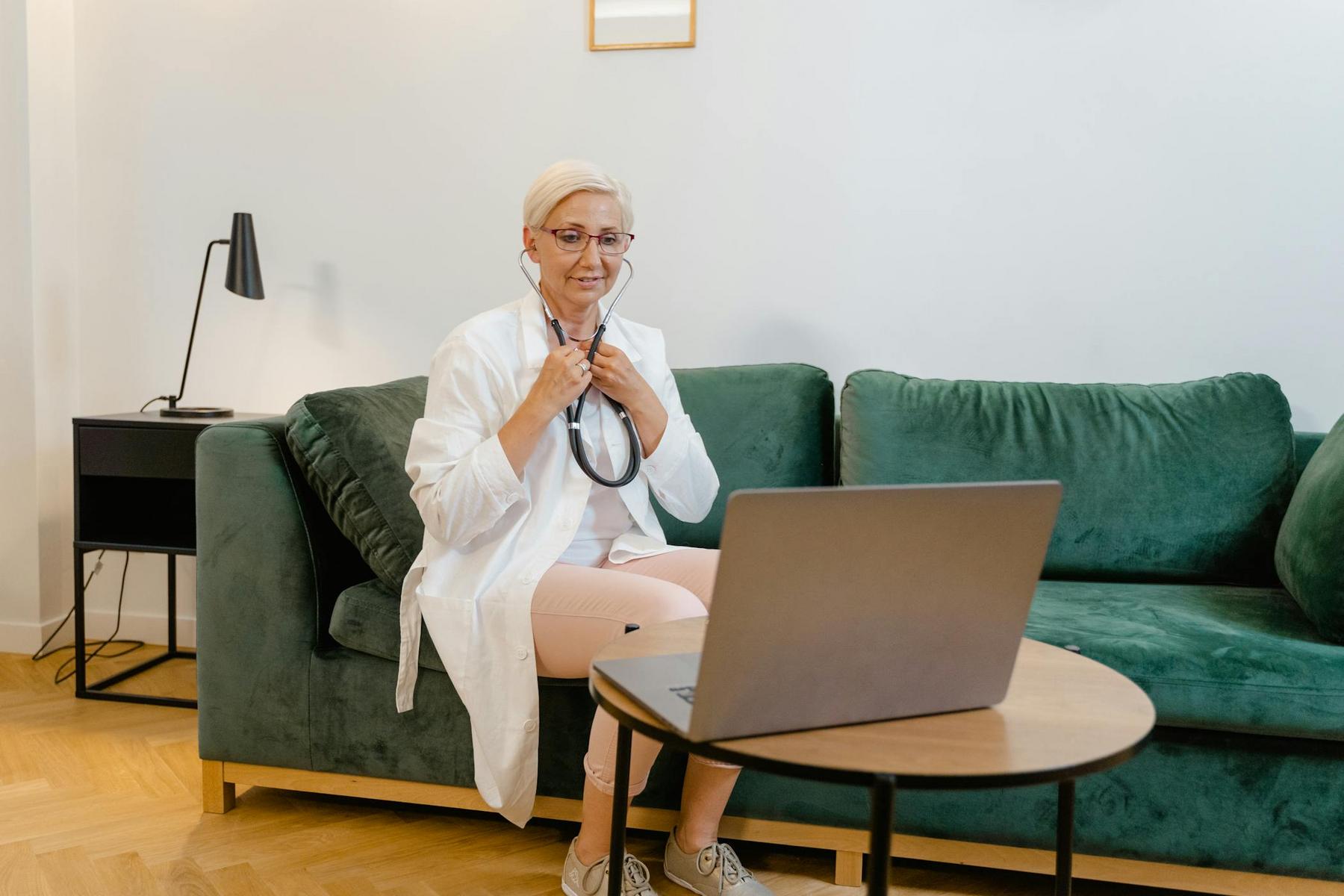The landscape of weight management has fundamentally transformed through the strategic integration of digital health technologies. In 2025, Australian healthcare providers are witnessing unprecedented success rates as technology-driven approaches enhance traditional weight loss methods by 30-50% compared to conventional treatments alone. This revolution extends far beyond simple calorie-counting apps, encompassing sophisticated AI-powered nutrition platforms, comprehensive telehealth ecosystems, and evidence-based digital therapeutics that deliver measurable clinical outcomes.
The convergence of medical expertise with cutting-edge technology has created new possibilities for personalised, accessible, and effective weight management. With 4.23 million urban Australians and 444,000 regional users accessing telehealth services annually, the strategic use of technology to support weight loss has become a cornerstone of modern healthcare delivery.
How Can Personalised Nutrition Technology Transform Weight Loss Outcomes?
Strategically using technology to support weight loss begins with precision nutrition approaches that leverage genetic profiling and artificial intelligence. Modern genomic testing now analyses 84+ obesity-related genetic variants, including FTO and MC4R polymorphisms that influence carbohydrate sensitivity and metabolic efficiency.
Australian healthcare providers utilise direct-to-consumer DNA testing to decode these genetic markers, enabling dietitians to customise macronutrient ratios with 23% greater precision than standard dietary guidelines. Patients with specific PPARG polymorphisms receive tailored lipid intake recommendations, demonstrating 12% greater fat loss compared to generic low-fat dietary approaches in randomised controlled trials.
Third-generation nutrition applications employ sophisticated neural networks that process real-time biometric data from wearable devices. These systems continuously adjust meal plans based on glucose monitoring patterns and activity levels, creating dynamic nutritional strategies that adapt to individual metabolic responses. The Australian-developed NutriAI platform has successfully reduced glycemic variability by 18% in diabetic patients through intelligent carbohydrate redistribution algorithms.
Advanced AI-Powered Food Recognition Systems
Computer vision technology has revolutionised dietary tracking through smartphone-based food recognition systems that achieve 94% accuracy in portion size estimation. These applications automatically log nutritional data while providing immediate feedback to guide users toward whole food choices, reducing manual entry errors by 62% compared to traditional tracking methods.
What Role Does Digital Biomarker Collection Play in Weight Management?
Modern wearable ecosystems capture comprehensive health parameters through fused sensor technology, monitoring 27+ distinct biomarkers including optical heart rate variability, skin conductance, barometric pressure changes, and three-dimensional accelerometry for non-exercise activity thermogenesis quantification.
Clinical studies demonstrate that users of advanced wearable devices maintain 38% higher daily step counts through adaptive goal-setting features compared to passive tracking systems. Integration with electronic health record systems enables general practitioners to detect subclinical metabolic issues, with abnormal nocturnal heart rate patterns triggering early interventions for 14% of high-risk patients.
| Technology Type | Clinical Outcome | Success Rate | Key Benefit |
|---|---|---|---|
| AI Nutrition Platforms | 30-50% enhanced weight loss | 94% food recognition accuracy | Personalised meal planning |
| Telehealth Programs | 20.2% body weight reduction | 59.3% patient engagement | Accessible medical supervision |
| Digital Tracking Systems | Improved adherence | 86.4% patient compliance | Real-time monitoring |
| Multimodal Approaches | 14.9% sustained weight loss | 68-week maintenance | Comprehensive care integration |
Advanced bioelectrical impedance analysis scales now differentiate between subcutaneous and visceral adipose tissue using multi-frequency currents, detecting harmful visceral fat accumulation six months before BMI changes become apparent. This early detection capability enables proactive interventions that prevent metabolic complications associated with abdominal obesity.
How Effective Are Telehealth-Driven Weight Management Programs?
Strategically using technology to support weight loss through telehealth platforms has revolutionised access to specialised care across Australia. Virtual multidisciplinary teams combine monthly GP consultations for medication management, weekly dietitian-led meal planning sessions, biometric data review by exercise physiologists, and cognitive-behavioural therapy modules delivered through proprietary applications.
This collaborative model achieves remarkable clinical outcomes, with Australian telehealth programs demonstrating 20.2% body weight reduction over 12 months by synchronising data from 4.6 million health IoT devices nationally. Real-time prescription adjustments based on wireless scale uploads have reduced medication side effects by 33% compared to traditional in-person protocols.
Regulatory Framework and Safety Standards
Australia’s 2023 Telehealth Practice Guidelines establish stringent safety protocols including identity verification through MyGov ID integration, secure video platforms with end-to-end encryption, and mandatory in-person referrals for patients requiring physical examinations. The Royal Australian College of General Practitioners now advocates PBS subsidies for GLP-1 agonist medications when prescribed through accredited virtual clinics, citing 55% higher medication adherence rates in telehealth cohorts.
What Pharmacological Innovations Support Technology-Enhanced Weight Loss?
Advanced algorithmic dose optimisation represents a significant breakthrough in strategically using technology to support weight loss through precision medicine. Tirzepatide titration algorithms analyse weekly weight trends, activity levels, and gastrointestinal tolerance markers to individualise dosage increases, reducing adverse events by 41% through predictive modelling of patient responses across different dosage regimens.
Machine learning models trained on 5,800 patient outcomes now recommend optimal dosing pathways with 89% accuracy, enabling healthcare providers to maximise therapeutic benefits while minimising side effects. These systems integrate seamlessly with digital health platforms, providing continuous monitoring and adjustment capabilities that enhance treatment outcomes.
Digital phenotyping technologies utilise natural language processing of patient-clinician interactions to identify optimal candidates for pharmacotherapy. Sydney-based trials have used voice analysis to detect linguistic markers of emotional eating in 78% of cases missed by standard questionnaires, enabling targeted medication selection with 22% better outcomes.
Which Behavioural Modification Technologies Show the Greatest Promise?
The strategic application of behavioural modification technologies leverages habit-formation psychology through sophisticated digital interventions. AI-powered food recognition systems automatically log nutritional data while providing image-based feedback to nudge users toward healthier food choices, creating sustainable behavioural patterns that support long-term weight management.
Immersive virtual reality exposure therapy modules simulate high-risk eating environments, training patients to resist cravings through biofeedback-controlled scenarios. Melbourne University’s research demonstrates that VR-based interventions reduce binge eating episodes by 41% using heart-rate variability-triggered coping strategies, providing effective tools for addressing psychological aspects of weight management.
Addressing Implementation Challenges
While strategically using technology to support weight loss offers tremendous potential, implementation challenges must be addressed to ensure equitable access. Urban Australians access telehealth services at significantly higher rates than regional populations, with limited bulk-billing options creating a 23% gap in rural access to video consultations.
Digital literacy barriers particularly affect elderly populations, while poor broadband infrastructure impacts 31% of rural clinics. Healthcare providers must develop comprehensive support systems that bridge these technological divides to ensure all Australians can benefit from technology-enhanced weight management programs.
Integrating Technology with Clinical Expertise for Optimal Results
The most successful approach to strategically using technology to support weight loss combines digital tools with human expertise rather than relying on technology alone. Studies demonstrate that standalone technologies achieve only 25% success rates for clinically significant weight loss without professional support, while multimodal approaches combining medical supervision, pharmacological innovation, and behavioural technology demonstrate sustained 14.9% body weight reductions over 68 weeks.
This integrated model addresses the complexity of obesity through comprehensive care that leverages technology’s precision and scalability while maintaining the therapeutic relationship essential for long-term success. Healthcare providers who strategically combine digital tools with clinical expertise create synergistic effects that exceed the sum of individual interventions.
The future of weight management lies in sophisticated ecosystems that seamlessly integrate genetic profiling, real-time monitoring, AI-powered analytics, and evidence-based medical interventions. As Australia continues expanding telehealth infrastructure and digital therapeutic approvals, patients gain access to previously unavailable levels of personalised, data-driven care that addresses obesity’s multifaceted nature through coordinated technological and clinical support.



